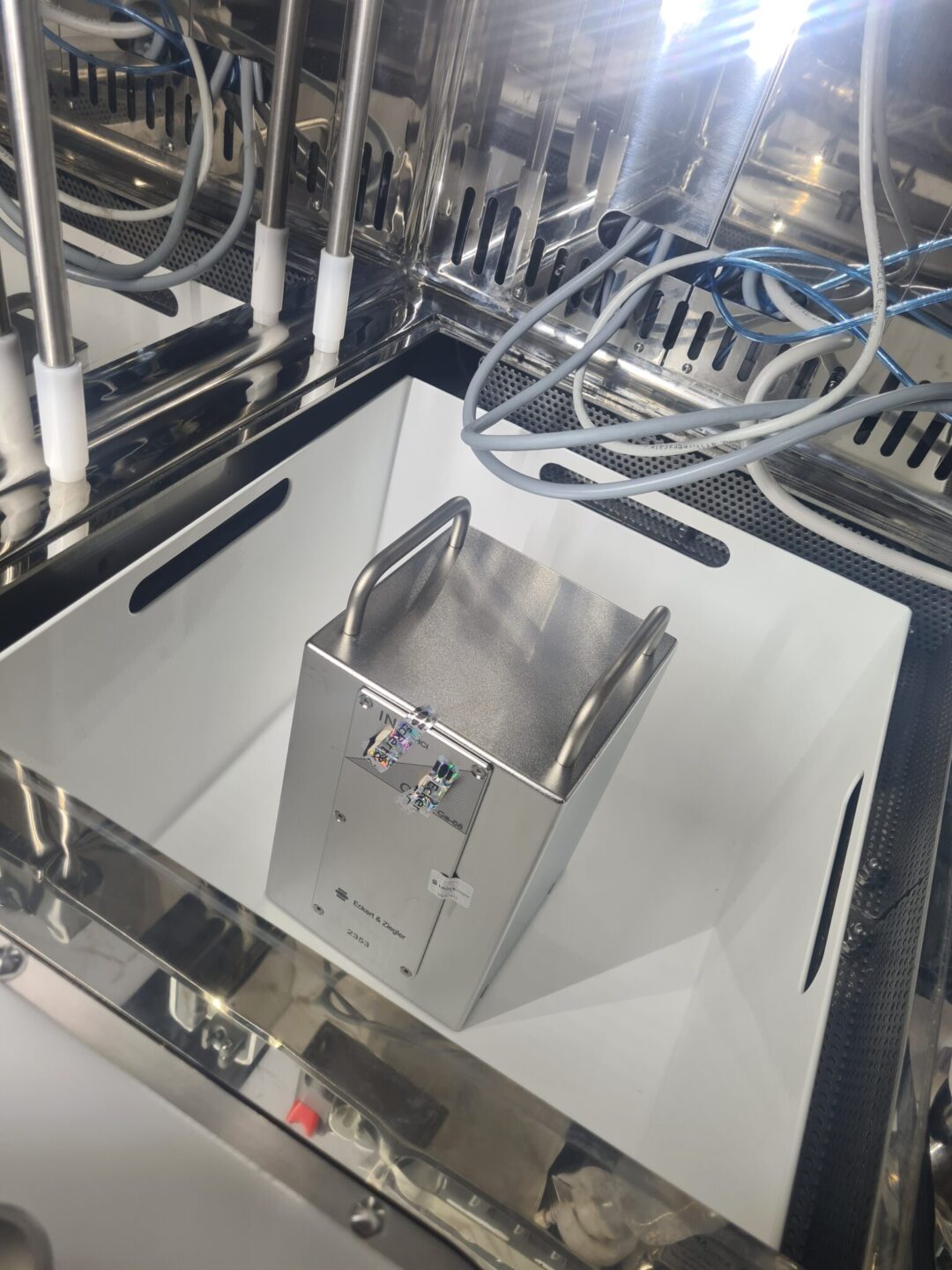Innovative PET/MR examinations with the 68Ga isotope are now available in our laboratory
In December, we purchased a highly specialized germanium/gallium generator (Eckert&Ziegler, GalliaPharm), which allows us to obtain the gallium-68 isotope in our radiochemistry laboratory. The 68Ga isotope combines with various chemical molecules that are responsible for the accumulation of the radiopharmaceutical in a precisely defined place in the body. After synthesizing and performing a series of quality control tests, the radiotracer is administered intravenously to the patient. Then, after a certain period of time needed for the isotope to accumulate in the body, a scan of the patient’s whole body is performed for diagnostic purposes.
The half-life of 68-gallium is relatively short (68 minutes). This is the main reason why these tracers are not widely used. From December 2022, patients can do such examinations in our laboratory. In combination with the highly specialized PET/MR scanner from Siemens Healthineers, we are able to offer examinations that are unique on a national scale.
New diagnostic possibilities
68Ga-DOTA-TOC/68Ga-DOTA-TATE (SomaKit, NETSPOT)
The above-mentioned peptides, after labeling with the 68Ga isotope, are used for positron emission tomography (PET) diagnostic examinations to locate neuroendocrine tumors (NETs) with positive somatostatin receptors in adult, pediatric and adolescent patients.
Neuroendocrine tumors are a heterogeneous group of tumors originating from cells of the endocrine system. These are very rare cancers that present many clinical challenges.
DOTA peptides specifically bind to somatostatin receptors (most often subtypes 2, 3 and 5) and are usually overexpressed on the surface of neuroendocrine cells, which is why they are helpful in the diagnosis, staging or planning of NETs therapy.
68Ga-PSMA (LOCAMETZ)
LOCAMETZ product is radiolabelled with 68 gallium for use in PET diagnostic examinations to locate prostate specific membrane antigen (PSMA) positive lesions in men with prostate cancer.
The non-invasive PET diagnostic examination with 68Ga-PSMA is used in men with prostate cancer in:
- searching for distant metastases who are candidates for radical treatment
- searching for a recurrence when a recurrence is suspected, based on an increase in the concentration of prostate-specific antigen (PSA) in the blood serum
- for the selection of patients with metastatic prostate cancer for whom PSMA-targeted therapy with 177-Lu radiopharmaceuticals is indicated.
PSMA is a transmembrane protein found primarily in all prostate tissues. Increased expression of PSMA is observed in various malignancies, but mainly in prostate cancer. Almost all prostate adenocarcinomas express PSMA in most primary and metastatic lesions. PET surrounds the patient with a ring of detectors capable of detecting photons produced by the annihilation of the positron/electron pair that follows positron emission. PET measures the three-dimensional distribution of 68Ga-PSMA, producing quantitative images that allow non-invasive assessment of PSMA expression in the patient’s body.
PRICE LIST OF PET EXAMINATIONS WITH 68GA ISOTOPE:
PET/MR PLN 8,500
PET/CT PLN 7,000





